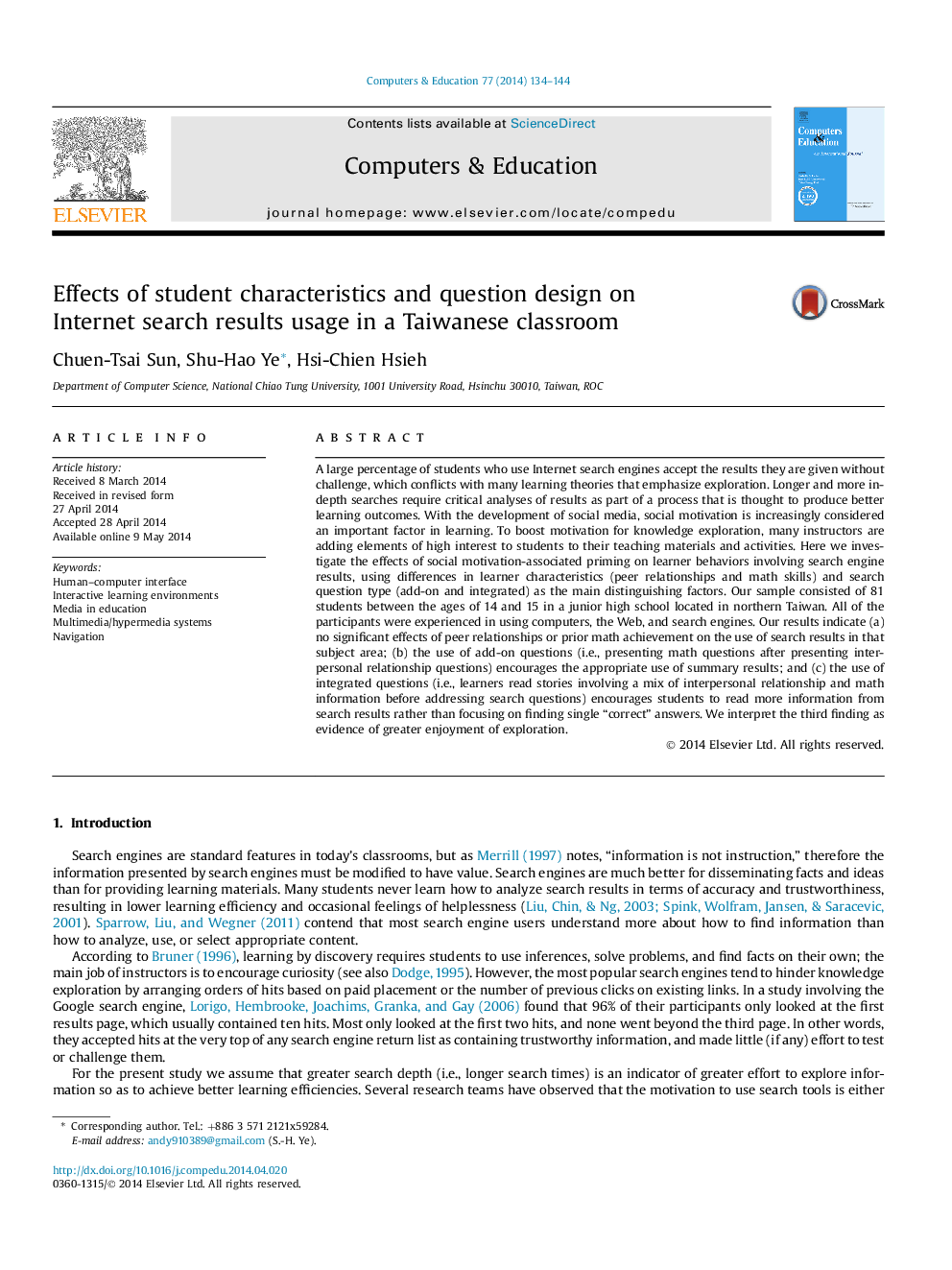| Article ID | Journal | Published Year | Pages | File Type |
|---|---|---|---|---|
| 348362 | Computers & Education | 2014 | 11 Pages |
•Effects of social motivation on learner use of search engine results are discussed.•Neither peer relationships nor math scores affected the use of search results.•Social topic search tasks positively affected the use of search results.•Question order promoted participant interest in answering questions.•Questions integrated into stories encouraged greater search depth.
A large percentage of students who use Internet search engines accept the results they are given without challenge, which conflicts with many learning theories that emphasize exploration. Longer and more in-depth searches require critical analyses of results as part of a process that is thought to produce better learning outcomes. With the development of social media, social motivation is increasingly considered an important factor in learning. To boost motivation for knowledge exploration, many instructors are adding elements of high interest to students to their teaching materials and activities. Here we investigate the effects of social motivation-associated priming on learner behaviors involving search engine results, using differences in learner characteristics (peer relationships and math skills) and search question type (add-on and integrated) as the main distinguishing factors. Our sample consisted of 81 students between the ages of 14 and 15 in a junior high school located in northern Taiwan. All of the participants were experienced in using computers, the Web, and search engines. Our results indicate (a) no significant effects of peer relationships or prior math achievement on the use of search results in that subject area; (b) the use of add-on questions (i.e., presenting math questions after presenting interpersonal relationship questions) encourages the appropriate use of summary results; and (c) the use of integrated questions (i.e., learners read stories involving a mix of interpersonal relationship and math information before addressing search questions) encourages students to read more information from search results rather than focusing on finding single “correct” answers. We interpret the third finding as evidence of greater enjoyment of exploration.
